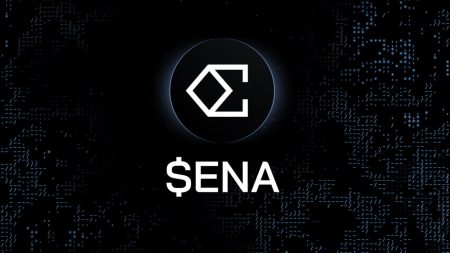Avraham Eisenberg, also known as the Mango Markets hacker, was found guilty in a Manhattan federal court for orchestrating a scheme that resulted in the theft of approximately $110 million from the Solana-based DeFi platform. Eisenberg could face a maximum sentence of 20 years in prison for his crimes. Prosecutors argued that Eisenberg exploited the platform, leading to significant financial losses. On April 18, a federal jury in New York found Eisenberg guilty of commodities fraud, commodities manipulation, and wire fraud in connection with the scheme, which involved manipulating Mango Markets’ native token, $MNGO. The trial began on April 9 and lasted a little over a week.
Eisenberg’s legal team argued during the closing arguments that he had not committed any criminal acts but rather orchestrated a “successful and legal trading strategy,” resulting in approximately $110 million in gains. His lawyer, Brian Klein, stated that Eisenberg adhered to Mango Markets’ smart contracts and withdrew his capital without borrowing. Eisenberg returned $67 million worth of cryptocurrency to Mango Markets following the exploit, claiming he had legally obtained the remainder of the funds. Despite the disappointing verdict, Klein affirmed their intention to continue fighting for their client and indicated plans to file post-trial motions. The defense asserted that Eisenberg did not engage in criminal activities but rather conducted a legal trading strategy.
Mango Markets was the victim of an attack on October 11, 2022, resulting in the theft of approximately $110 million from its treasury. Eisenberg came forward as the perpetrator, claiming the exploit was merely a “highly profitable trading strategy” conducted within legal bounds. Prosecutors alleged that Eisenberg utilized two accounts to engage in manipulative trading involving futures contracts tied to the values of Mango’s token MNGO and the stablecoin USD Coin, inflating the value of his contracts by 1,300% within 20 minutes. This allowed him to borrow against his holdings and withdraw $110 million in various cryptocurrencies. Subsequently, Eisenberg agreed to return $67 million in exchange for other token holders refraining from pursuing legal action or freezing his assets. He was arrested on December 26, 2022, in San Juan, Puerto Rico, deemed a flight risk by prosecutors.
On January 9, the Commodity Futures Trading Commission (CFTC) supplemented the FBI’s charges against Eisenberg, levying two counts of market manipulation. The U.S. Securities and Exchange Commission (SEC) also filed charges on January 20, alleging violations of anti-fraud and market manipulation provisions of U.S. securities laws. A lawsuit filed by Mango Labs described Eisenberg as a “notorious online personality” with a history of attacking multiple cryptocurrency platforms and manipulating cryptocurrency markets. Eisenberg’s scheduled sentencing on July 29 carries a potential maximum sentence of 20 years in prison, with the actual sentence expected to be less severe. This verdict follows the sentencing of Sam Bankman-Fried, founder of the now-defunct FTX cryptocurrency exchange, to 25 years in prison for embezzling $8 billion from customers, indicating increasing scrutiny and enforcement within the cryptocurrency industry.














